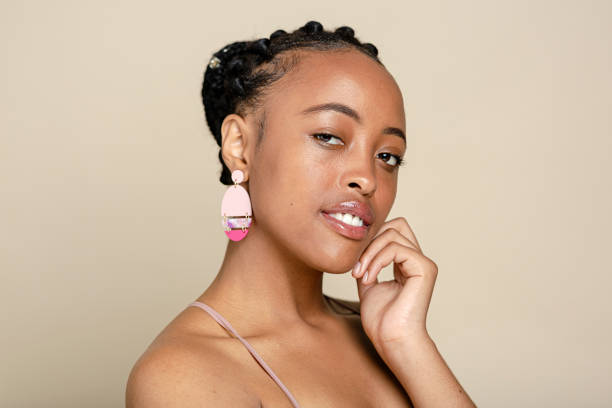
If you are under the age of 40, when it is suggested that women begin getting screening mammograms, you may believe you are too young to have breast cancer—this is not the case.
While breast cancer is uncommon in younger women, it is the most frequent malignancy among women aged 15 to 39. And some types of breast cancer are becoming more common in young women.
While breast cancer is more often identified in postmenopausal women, it may and does occur in young women as well. Breast cancer has been detected in women in their twenties.
According to the Centers for Disease Control and Prevention, around 11% of all breast cancers occur in women under the age of 45.
This year, an estimated 26,393 women under the age of 45 will be diagnosed with breast cancer. Every year, over 1,000 women under 40 die from breast cancer.
While most breast cancers discovered during annual mammograms are in women over 50, women under 40 are generally too young to begin screening unless they have a mutation, a genetic reason, or physical symptoms, such as a mass or other breast changes.
RELATED: Day 1: Just Diagnosed with Breast Cancer
When Should Screening Begin?
Doctors suggest starting mammography screening no earlier than age 40 and no later than age 50 for women at average risk for breast cancer and continuing until at least age 74.
A mammogram should be performed at least every two years. A breast ultrasound is suggested for women whose screening mammography reveals thick breasts.
It is important to consult with a healthcare professional about when you should begin obtaining mammograms, depending on your individual health profile, and to schedule an appointment with your doctor if you observe any unexpected breast changes.
At any age, if a woman feels a breast lump that does not go away while conducting a breast self-exam, she should get it looked at.
When women observe an unexpected breast change, breast cancer is detected more than half of the time.
Whenever there is a new mass or lump, inform your doctor—it should be checked by a clinical physical examination followed by breast imaging.
Other warning symptoms include breast asymmetry and nipple abnormalities such as discharge or peeling skin surrounding the nipple.
These symptoms do not imply you have breast cancer, but they are a cause to seek medical advice.
Breast Cancer Treatment Costs for Young Women
Everyone with breast cancer is in danger of experiencing "economic toxicity" as a result of the diagnosis.
Younger women are less likely to be financially secure or to have established themselves in a position that gives sick leave and paid time off when diagnosed with breast cancer; they are also more likely to have small children.
If you have financial difficulties before a cancer diagnosis, breast cancer can exacerbate that. This is particularly true for younger women from lower socioeconomic backgrounds who don't have access to programs or much career flexibility.
It might be difficult to hold a job or earn a raise—breast cancer patients may become semi-unemployed due to the many medical visits they must attend.
Can a Young Woman with Breast Cancer Become Pregnant?
A breast cancer diagnosis increases doubt surrounding starting a family for young women.
Because cancer therapies may impair ovarian function, doctors who deal with cancer patients can help maintain fertility before treatment starts by preserving eggs or embryos, a practice known as cryopreservation.
It is also possible that a young woman is pregnant when diagnosed with breast cancer, which necessitates cautious discussions between the physician and the patient.
Because pregnancy causes a range of changes in the breast, it may make cancer more difficult to identify, but it doesn't imply the prognosis is worse.
RELATED: What Does a Breast Cancer Lump Feel Like?
Can Breast Cancer Affect a Young Woman's Body Image?
Another barrier young women encounter is the impact of breast cancer treatments and their negative effects on body image.
There are great pressures put on women in American culture about their beauty. Many women truly suffer not just with treatment but with the aftermath.
They might have lost hair and gained weight. Their breasts are not the same.
Young women may seek a companion when breast cancer treatment leads them to go through physical changes that most women don't go through until they're older and postmenopausal: Hot flashes or abdominal weight gain.
It's different when these changes happen at 20 and 30.
Hormone therapy decreases tumor development and inhibits recurrence in some forms of breast cancer.
However, this life-saving medicine, which a woman must continue to take for the rest of her life, causes female breast cancer survivors to enter menopause several years or even decades before their contemporaries.
Breast Cancer Detection in Younger Women
While it is impossible to predict who will get breast cancer, several characteristics place women at a greater risk at a younger age.
Breast cancer risk is increased in women with a mother or sister who had breast or ovarian cancer at a young age or who are of Ashkenazi Jewish descent.
Another major risk factor to be aware of is receiving radiation therapy in the chest (for example, for lung cancer treatment).
You can take certain actions, such as discussing your family cancer history with your doctor and taking advantage of genetic testing for BRCA and other genetic variants, if available depending on your health and family history.
Doctors are learning more about cancer, genetics, and risk factors via study. Young women should know their family history and keep their physicians informed as it changes over time.
Current recommendations encourage women to do a breast self-exam at least quarterly (four times a year) and learn all they can about their risk factors.
Breast awareness entails knowing your family history of breast and other cancers. It also entails being aware of any behavioral factors that may increase your risk of developing breast cancer, such as weight gain and alcohol consumption (more than one alcoholic drink per day), and taking action.
Because studies suggest that women who gain extra weight throughout adulthood are more likely to develop breast cancer, leading a healthy lifestyle is vital for your general health—and especially for your breast health.
Keep a healthy weight for your height throughout your life with nutrition and exercise. Excess weight, especially after menopause, is a substantial risk factor for breast cancer development.









